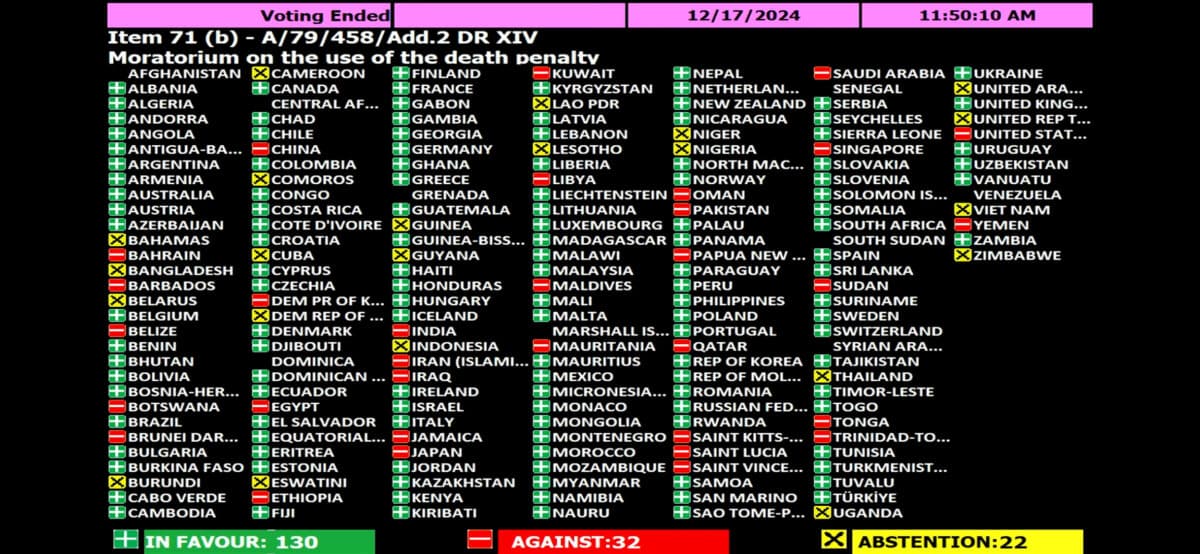Helping South Korea on its progress towards abolition
World Day
Parliamentarians, religious leaders and members of human rights organisations including Amnesty International gathered at the National Assembly Library in Seoul on October 10 to discuss the prospect of abolishing capital punishment in South Korea. American law professor Speedy Rice represented the World Coalition.
In an unusual move, National Assembly Speaker Kim Hyong O opened the event. The speaker, who is bound to represent the legislature as a whole, would not have attended an abolitionist event a few years ago, Prof. Ahn Kyong-When, Chairperson of the National Human Rights Commission of Korea (above), told Rice. “It would have amounted to taking sides”, Rice explained.
The National Human Rights Commission is an independent body set up by the South Korean authorities in 2001. It has been recommending the abolition of the death penalty since 2005.
British ambassador and top clerics
British Ambassador Martin Uden (left) gave a speech that Rice described as “very direct and eloquent about his call for abolition of the death penalty in South Korea”. The British embassy in Seoul established contact with the World Coalition to follow up on international ways of helping South Korea end capital punishment.
South Korea’s top Christian and Buddhist clerics, who have formed a multi-denominational religious groups against the death penalty, also took part. They joined students for a staged protest against capital punishment (below).
Abolition bill and UN General Assembly vote
Rice then met Chong-Hoon Kim, the head of the Human Rights Department at the ministry of Justice, to discuss South Korea’s abolition bill and encourage the country to change its vote on the UN General Assembly for a moratorium on executions from “abstain” last year to “yes” this year.
A bill proposing to abolish the death penalty was introduced in the South Korean parliament in December 2004, but has yet to be voted upon. Although 175 out of the 273 National Assembly members supported the bill, its opponents have successfully cited support for capital punishment among public opinion to postpone the vote ever since.
According to Chong-Hoon Kim, 65% of Koreans, and a strong lobby of fundamentalist Christian churches, support the death penalty.
No executions have taken place in the country in the past 10 years, which places it in the de-facto abolitionist category.







